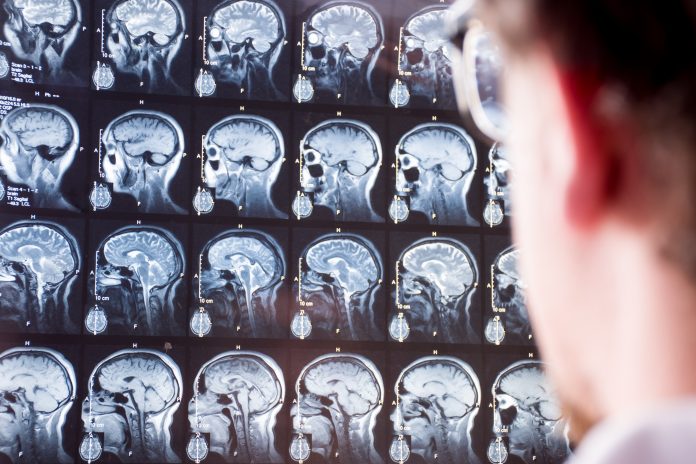Prof Monica Di Luca, President, European Brain Council, highlights the importance of continuous prioritisation and attention to brain research during the COVID-19 pandemic
The year 2020 seemingly started like any other, but has quickly evolved into a test for a global society, as the novel coronavirus, or COVID-19, came, as if overnight, in full force. In Europe, in particular, everyday life was brought to a halt as the disease spread like wildfire across the continent, pushing healthcare systems to their limits and paralysing economies throughout the European Union (EU) Member States and beyond.
Brain disease community vs COVID-19
The brain community as a whole has watched the pandemic unfold from an uncomfortable distance, not directly involved but progressively affected. Society has seen a worrying increase in mental health issues and chronic illnesses face deprioritisation in the face of this emergency. It is becoming clearer to the community as the pandemic rages on that the danger COVID-19 poses on vulnerable societies — like those living with brain conditions and other pre-existing conditions — is undeniable. Researchers and physicians note growing evidence of not only the threats of COVID-19 to patients but also the direct neurological impact the virus has started manifesting, with physicians working to better understand how exactly COVID-19 has affected their patients. (1)
Brain researchers
The brain research community, in particular, has seen their daily work and lives shift significantly. Many are severely affected by the outbreak of COVID-19 in Europe as well as by the containment measures introduced by many EU countries. In April, multiple calls to the European Commission were launched – including by the European Brain Council (EBC) (2) – to ask the European Commission to postpone deadlines for Horizon 2020 calls, as the containment measures hindered researchers in their efforts to collaborate with partners in other EU-countries, travel across Europe, organise meetings, gather relevant experts and conduct their research or prepare their project proposals as normal. Furthermore, medical societies are calling for support for medical and research societies to ensure continued guidance for healthcare professionals during the COVID-19 Pandemic (3), specifically since the medical and research societies that health professionals rely on for up-to-date information on clinical practice are facing serious challenges during this time.
Nevertheless, it is important to realise that infectious disease pandemics like this one are unpredictable and that, meanwhile, on a daily basis, millions of people across the world are living in “pandemics” of their own, be it cancer, cardiovascular disease or brain conditions.
Treatment
Though one in three Europeans are set to live with a brain disease at some point of their life (4) – neurological and mental alike – conditions of the brain remain without disease-modifying treatments or cures and research is disproportionally underfunded compared to other comparable or less-threatening disease areas. While no diseases should be neglected or go without treatment or cures, it’s important to make this comparison to demonstrate the lack of urgency afforded to the brain. The longer it takes society to understand how to respond to these diseases, the more crucial it will become to do so. As the numbers grow due to our rapidly ageing population and with the brain leading as the highest cause of ill-health and disability worldwide, the closer we get to a noncommunicable diseases state of emergency.
Horizon Europe
The transition from Horizon 2020 to Horizon Europe must be used as a window of opportunity for the brain community and the EU to take on a leadership role with respect to research breakthroughs, innovation and treatment development. Funding should remain uninterrupted and adequate resources should continue to be dedicated to addressing the burdens brain disorders place on our society. It is crucial that the new framework programme begins with a robust and appropriate structure for research, particularly through maintained collaboration opportunities but also by other coordination mechanisms such as, for instance, a unified and ambitious co-funded brain health partnership.
The European Commission made it clear that its priority for brain research and the brain community was to better understand the existing landscape, the potentials and lack thereof within the field and what more can be done. The H2020-funded European Brain Research Area (EBRA) project (5), coordinated by the European Brain Council (EBC), was launched in 2018 with the exact aim to identify existing brain research communities across Europe and to provide them with coordination and support. In parallel, a community-wide strategic reflection has been initiated on the future of brain research within Horizon Europe and beyond, involving key large-scale initiatives that fund brain research in Europe today, that include: the Human Brain Project (HBP), Neuron, EU Joint Programme – Neurodegenerative Disease Research (JPND), the Innovative Medicines Initiative (IMI) and other joint programmes and initiatives coordinated by the European Commission.
If COVID-19 has taught us anything, it is that, as a society, we are not yet fully prepared nor capable to tackle the majority of health epidemics we are currently facing or will potentially face in the coming future. Now is the opportunity for Europe to apply the lessons learned and be bold at the international level, to reflect on what ails our community and to join global efforts and make an impact in the brain community.
References
(1) EAN Survey on Neurological Symptoms in COVID-19 patients, https://www.surveymonkey.com/r/eancovidsurvey_eancorenl
(2) EBC and brain community call for extension of H2020 deadlines https://www.braincouncil.eu/deadlines-for-horizon-2020-calls-extended-until-june-2020-due-to-covid-19/
(3) BioMed Alliance Call For Support in COVID-19 Pandemic https://www.biomedeurope.org/images/pdf/news/Statement_COVID-19-v3.pdf
(4) EU support for research and innovation in the area of the brain https://ec.europa.eu/info/research-and-innovation/research-area/health-research-and-innovation/brain-research_en
(5) The European Brain Research Area https://www.ebra.eu
“The EBRA project has received funding from the European Union’s Horizon 2020 research and innovation programme under grant agreement No 825348”











